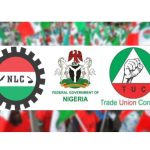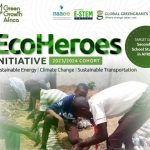From Abel Leonard, Lafia
Our world faces immense challenges, from poverty to climate change, that require bold actions to mitigate. But true progress emerges not from political posturing or partisanship but through the power of ideas and partnerships.
This truth drives an ambitious new initiative, passionately undertaken by Hon. David Emmanuel Ombugadu, who travelled with a team of interests from Nasarawa State recently on an inspirational three nation journey to Thailand, China and Vietnam in pursuit of knowledge and ideas to transform the lives of the people back home.
The team toured factories, farms, and markets across the three Asian nations to gain first-hand experience of their development models that is fast putting people of that region out of poverty and underdevelopment.
“We are on a mission to acquire knowledge that can be replicated in our state to create jobs, enhance food production, and improve the living standards of our people,” Ombugadu said.
One highlight of the trip was a visit to a massive agricultural facility near Bangkok, where the latest technologies are deployed to achieve high crop yields organically.
“I was amazed by their level of mechanization. If our farmers can adopt such modern methods, it would lead to a boom in production and food security,” noted Ombugadu
The team also toured industrial parks and special economic zones in China, with advanced infrastructure that supports manufacturing enterprises.
“With the right policies and infrastructure, we can also build industrial clusters that will employ thousands of our youth.”
There were also useful lessons on governance from Vietnam’s model of grassroots participation and social welfare policies. “We saw first-hand how the Communist Party engages citizens at the lowest levels. This can inspire more inclusive governance,”
The over one month ten 10 days Asian tour has equipped the delegation with many insights that can now be adapted to local realities. “We will waste no time in implementing policies and projects inspired by this trip within our sectors and control even at the private levels. Certainly, the future is bright for our people,”
The trip, which was inspired by a desire to enhance the lives of the people of Nasarawa State,” said Hon. David Emmanuel Ombugadu in an exclusive interview, was also to gain knowledge and forge partnerships that will uplift our communities through economic empowerment, educational advancement, and improved healthcare.”
Ombugadu highlighted meetings with government officials and business leaders in all three countries as pivotal in shaping a “back to work plan” as a pruvate initiative. “In Thailand, we met with agriculture experts and discovered innovative farming techniques that maximize crop yields. We plan to implement these in Nasarawa state to boost food production,” he said.
The trip to China focused on manufacturing and technology. “We toured factories and met with tech entrepreneurs in Shenzhen. Our goal is to replicate their success by establishing technology hubs and vocational centers through our foundation,” Ombugadu revealed.
Healthcare was the emphasis in Vietnam. “We were impressed by their community-based preventative care model. “we adapt this to provide quality, affordable healthcare access points across the state in line with our current enrolment of people under National Health Insurance plan,” the PDP leader explained.
Ombugadu described the trip as an eye-opening learning experience. “By benchmarking global best practices in agriculture, manufacturing, technology, and healthcare, we can eventually develop policies and programs that create jobs and opportunities for the people,” he said.
The former 2023 PDP governorship candidate explained that “This blueprint paves an ambitious yet achievable path towards economic prosperity. The knowledge gained will help us implement solutions that improve lives. “Our trip proves that by working together, we can build a brighter future for Nasarawa State.”
He said the primary objectives of the trips were to explore opportunities for agricultural mechanization, establish partnerships for agricultural diversification and value addition, Investigate sustainable development practices and environmental conservation techniques.
Ombugadu and his team also highlighted key findings and potential benefits for empowerment through agricultural mechanization and self reliance.
He further explained that the secret behind Vietnamese agricultural mechanization strategy rested on its significant strides in agricultural mechanization, particularly in rice production. “The rate of mechanization for land preparation is 80%, and for rice threshing and harvesting, is 50%.
“The Vietnamese government has implemented policies to support agricultural mechanization, such as the “Build New Rural” program, which could serve as a model for Nasarawa State.”
At a live event, Ombugadu stated that the event showcased advanced agricultural machinery and technologies, including laser-controlled land levelling, mechanized direct seeding, and drones for fertilizer and pesticide application
“These technologies can be adapted to Nasarawa State to improve agricultural productivity and efficiency thereby
empowering close to or more than 20,000 Nasarawa farmers through a policy of subsidisation of power tilling tools, mini tractors, as well as implementing agricultural best practices ro achieve technology transfer.”
According to the PDP candidate China-ASEAN Agricultural Cooperation has established agricultural experimental stations in the Association of South East Asian Nations (ASEAN), including Vietnam, to improve cultivation efficiency and promote sustainable practices.
He added that collaborating with these institutions and sectors could facilitate the transfer to enhance local traditional agricultural practices.
In interms of Agricultural Diversification and Value Addition, Ombugadu said Thailand-Vietnam Agriculture have a history of successful agricultural collaboration, particularly in rice production and export, noting that establishing similar bilateral partnerships could help Nasarawa State diversify its agricultural output and improve value addition processes.
“China has developed advanced techniques in seedling breeding, water and fertilizer management, and pest control, which have been successfully implemented in ASEAN countries.”
“Adopting these techniques in Nasarawa State could lead to higher crop yields and better quality produce.”
In terms of sustainable development and environmental conservation, Ombugadu is of the opinion that renewable energy could be the solutions with Vietnam’s focus on smart and environmentally friendly technologies, such as efficient irrigation systems and renewable energy solutions, aligns with the goals of the “Back to Work Plan.”
Implementing these solutions in Nasarawa State, he said, could provide sustainable energy sources for agricultural operations in rural communities.
He added that the use of efficient water management and irrigation systems demonstrated in Vietnam can address water scarcity challenges anywhere it is located with emphasis on agroforestry and soil conservation saying China’s emphasis on sustainable and resilient agriculture, including agroforestry and soil conservation techniques, can be replicated in Nasarawa State to restore degraded lands and promote sustainable land management.
Enhancing healthcare access through NHIS, building on our previous success, he said would foster partnerships with corporations and organisations, promoting investments and job creation for youth and women.
He said his blueprint will serve as a roadmap for translating international engagements into tangible and transformative initiatives that will drive economic growth, food security, and sustainable development in the private and community sectors locally.






